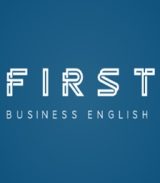
The CEFR Framework For Languages
- Posted by Ryan Anthony
- Categories Blog
- Date February 8, 2025
The Common European Framework of Reference for Languages, or CEFR, is an international standard for describing language ability. It was developed by the Council of Europe and has been widely adopted as a reference point for language learning and teaching across Europe and beyond. The framework is designed to be a transparent, comprehensive, and user-friendly tool for learners, teachers, and language assessment experts.
The CEFR is organized into six levels, from A1 (beginner) to C2 (proficient). Each level is divided into three broad categories: A, B, and C. The A category represents basic language use, B represents independent language use, and C represents proficient language use. Within each category, there are two sub-levels. For example, A1 represents the lowest level of language ability, while A2 represents a slightly higher level of proficiency.
The CEFR is used to assess language proficiency across four key skills: reading, writing, listening, and speaking. Each skill is divided into several sub-skills, and the framework provides detailed descriptors for each sub-skill at each level. For example, the speaking skill is divided into three sub-skills: interaction, production, and mediation. The interaction sub-skill refers to the ability to engage in a conversation, while the production sub-skill refers to the ability to produce language in a variety of contexts.
The CEFR is used for a variety of purposes, including language assessment, curriculum development, and teacher training. Language assessment experts use the framework to develop tests and exams that are aligned with the levels and sub-skills of the CEFR. Language teachers use the framework to develop lesson plans and learning materials that are appropriate for the level of their students. And teacher trainers use the framework to develop training programs that help teachers to understand and use the framework effectively.
One of the key advantages of the CEFR is its transparency and consistency. Because the framework provides detailed descriptors for each level and sub-skill, learners, teachers, and assessment experts can have a clear understanding of what is expected at each level. This makes it easier for learners to set goals and track their progress, for teachers to develop appropriate learning activities and assessments, and for assessment experts to develop fair and reliable tests.
Another advantage of the CEFR is its flexibility. While the framework was originally developed for European languages, it has been adapted for use with other languages as well. This allows language learners and teachers around the world to use the same standard to describe and assess language ability. Additionally, the CEFR can be used for both formal and informal learning contexts, making it a useful tool for a wide range of language learners.
At First Business English we focus on the first 2 levels of the CEFR Framework, level A and level B. We specialize in learners that are starting their English language learning journey although it is expected that each of our learners has at least a very basic level of English, particularly when we focus on learning English for Business. We have provided a basic practice assessment for each A1, A2, B1 and B2 levels so that you can have an idea of what grade you should start at. The level tests are a simple guide and can be found through the English Level Test Page. We will however assess what level is the best level for you to start at during our initial consultation.
In conclusion, the CEFR is an important tool for describing and assessing language ability. Its six levels and detailed descriptors provide a transparent and consistent framework for language learning and teaching. The framework is widely used across Europe and beyond, and its flexibility makes it a valuable resource for language learners and teachers around the world.
About First Business English
First Business English is a premium business English language online education center that provides individuals and groups the opportunity to learn Business English that enhances their careers and lives through a structured Business English curriculum. Contact Us
Ryan Anthony is an enthusiastic, self-motivated, reliable Online Business English language tutor who is learner focused and highly adaptable. Bachelor of Business Studies Degree educated with extensive IT Support, Call Centre Management, Retail Management and English Language Teaching experience.
You may also like

The Pros And Cons Of Freelancing As A Career

The Effect Of Prices And The Cost Of Living




